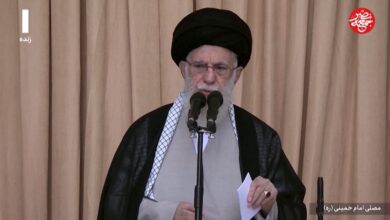
Varying opinions have been given concerning the recent agreement to delineate water borders between Egypt, Greece and Cyprus, a step that seeks to organize the right to natural gas fields in the eastern Mediterranean.
While some experts claim that Egypt ceded a portion of its territorial waters to extend a pipeline carrying exported Israeli gas to Athens, a government official denies that Egypt had given up any of its water borders with either country, stressing that existent agreements preserve Egypt’s rights.
But Nael al-Shafei, a lecturer at the Massachusetts Institute for Technology, confirms that Egypt had waived a water line that is double its Delta region to Greece, a move that would ensure Greece an exclusive economic zone (EEZ) that bond its borders with Cyprus’.
On his facebook account, Shafie says the move by Egypt allows Greece to pass the gas pipeline between Athens and Tel Aviv without having to pay any fees to Egypt. Shafei claims the Egyptian decision was originally a response to Israel which did not want its gas pipeline to pass across Egyptian waters.
Refuting the account is Ahmed Abdel Halim, a former director of the state’s Egyptian Geological Survey and Mining Authority. “Results of investigations by the general advocate of the Public Funds Prosecution had invalidated the complaint about Cyprus’ and Israel’s takeover of Shimshon and Aphrodite natural gas fields besides other fields falling within Egypt’s waters,” he said.
Abdel Halim quoted Egypt’s former foreign minister Ahmed Abul Gheit, and current Foreign Ministry Spokesperson Badr Abdel Atty as stressing that Egypt had not forfeited its water gas rights.
According to Abdel Halim, one of the opinions claiming Egyptian rights to Mediterranean gas is based on the idea that the primary source for the the gas discoveries were the hydrocarbonic materials drawn from North Africa, specifically through the Nile River, and accumulated at those sites over time. Abdel Halim says that proponents of that view, however, forgot that the Cyprus island is open from four directions, overlooking Turkey, Syria, Lebanon, Israel, Gaza Strip, Egypt and Greece, while Egypt is open to the Mediterranean only from one direction.
Abdel Halim, moreover, stressed that “reliance on altitudes in determining economic frontiers is an elusive logic and is not taken as a reference in maritime laws.”
“If we accept that Israeli and Cypriot gas fields have their origins at the Nile River’s deposits, therefore giving Egypt rights to those fields, then the same rights should also be claimed by Sudan and Ethiopia. There should be even more serious rights for Ethiopia in all Egyptian farmlands since it is the sole source for Nile River sediments that earns Egypt’s soil its fertility.”
Edited translation from Al-Masry Al-Youm




